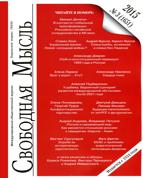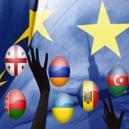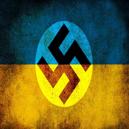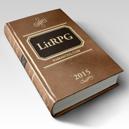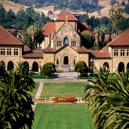
Мих. Лифшиц на уроках Гегеля
Штудируя Гегеля, советский философ стремился понять логику революции и постреволюционного развития культуры. Гегелевское понятие Мирового духа Лифшиц вслед за Белинским преобразовал в понятие «патоса», выражающее объективную силу исторической ситуации, «обстоятельств». Социалистическая революция представлялась ему столкновением двух «патосов»: уравнительной, анархической страсти к разрушению – с силой самосохранения культуры
Conservative Revolution. Mikh. A. Lifshitz in Classes of Hegel
Researching Hegel’s works, Soviet philosopher Mikhail Lifshitz was trying to understand logic of revolution and of the post-revolutionary development of culture. Following the ideas of Belinsky, M. Lifshitz interpreted the Hegel’s term of Welt-geist (the World Spirit) into the “pathos”, which reflected the objective force of his-torical situation, of conditions. M. Lifshitz understood the Social Revolution as a conflict of two pathos. The first of them was the egalitarian, anarchic passion for de-struction, and the second one was the forth of culture self-preservation.
 Ранний опыт государственного строительства большевиков и Конституция РСФСР 1918 года
Ранний опыт государственного строительства большевиков и Конституция РСФСР 1918 года
 7
7
 25515
|
Официальные извинения
25515
|
Официальные извинения
 972
972
 106396
|
Становление корпоративизма в современной России. Угрозы и возможности
106396
|
Становление корпоративизма в современной России. Угрозы и возможности
 239
239
 85267
85267
